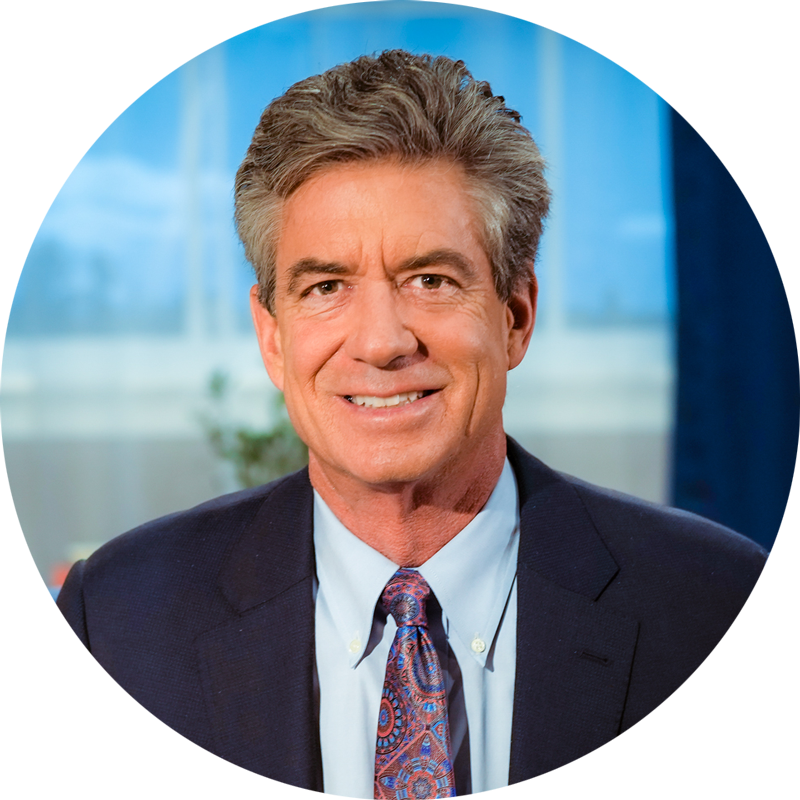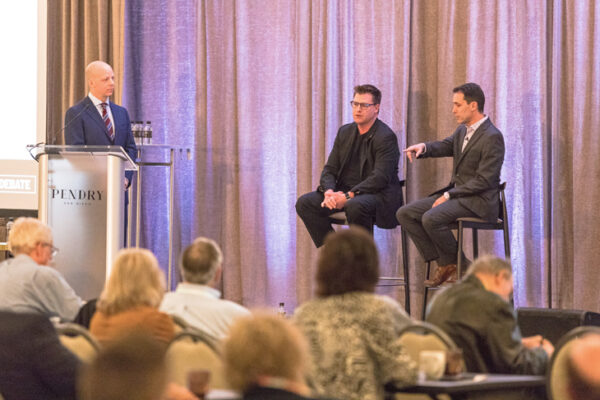This Time Is Different… Just Like Every Other Time
- The global coronavirus pandemic and resulting market slump seem like an entirely new challenge for wealth builders.
- But, as Alexander Green explains, this time really isn’t different.
Sir John Templeton was one of the greatest investors of the 20th century.
Founder of the Templeton Growth Fund, he didn’t just beat the market. He trampled it.
Forbes magazine described him as “one of the handful of true investment greats in a field crowded with mediocrity and bloated reputations.”
In 1999, Money magazine named him “arguably the greatest global stock picker of the century.”
Templeton is perhaps best known for almost single-handedly pioneering the field of global equity investing.
He believed investors would be foolish to restrict their investments to any one country. Seek out the world’s best investments, he advised, wherever they reside.
In the 1950s, for example, he poured shareholders’ money into the German and Japanese stock markets.
With the wounds of World War II still fresh, investing in Japan or Germany was about as popular with Americans then as the idea of funding the Taliban today.
But as those battered economies were rebuilt, his investment returns soared.
Templeton gave two particularly famous pieces of advice to investors. The first was this: “To buy when others are despondently selling and to sell when others are avidly buying requires the greatest fortitude… and pays the greatest reward.”
Looking at today’s market, that remark is so apropos that I won’t sully it with further commentary.
His other advice was this: “The four most dangerous words in investing are ‘this time is different.'”
That one needs a bit of explanation…
On the face of it, the cause of a market sell-off – like the one we’ve experienced lately – is always different.
For example, the stock market crashed on October 19, 1987. That was different.
After all, no economy stalled. No currency failed. No president or prime minister got shot. Yet the market plummeted 23% that day anyway.
Saddam Hussein unexpectedly invaded Kuwait in the summer of 1990 and grabbed its oil fields. That was different.
Oil prices spiked, the U.S. went into a bear market, and the world prepared for war in the Middle East.
When Long-Term Capital – an enormous hedge fund overseen by Nobel laureates – collapsed in 1998 and lost $4.6 billion, that was different.
Then-Federal Reserve Chairman Alan Greenspan had to recruit 14 major financial institutions to help supervise its orderly liquidation and keep a market correction from turning into a full-fledged panic.
A handful of zealots flew planes full of people into buildings on 9/11. That was different.
The stock market closed for a week but plummeted when it opened anyway.
The housing bubble that developed a decade and a half ago was different.
As subprime mortgages went nose down, so did some of Wall Street’s most storied names, including Bear Stearns and Lehman Brothers.
Global stock markets soon followed, and we endured the worst financial crisis since the Great Depression.
The Great Depression was different too, by the way. So was the 1918 influenza pandemic, the Dust Bowl, World War I, World War II, Vietnam, Watergate, the internet bubble and – oh yes – the coronavirus turning into a global pandemic.
Templeton, at first blush, seems to have had it exactly backward: It’s always different.
He knew that, of course.
He was referring to the widespread belief during market downturns that stocks are too dangerous to buy.
Stocks have always bounced back from adversity. Always.
(Permabears regularly point out that the Dow didn’t return to its September 3, 1929, high until November 23, 1954. But that ignores dividends. With dividends reinvested, equity investors made up their losses in less than five years.)
Some investors don’t understand how resilient equities are over time. Others do know but still can’t control their emotionally driven impulse to sell.
At a future date – and it could be much sooner than you expect – investors will look back at today’s market and realize that they could have responded in a way that was decent… great… or awful.
The awful investor sells in a panic – and always finds reasons to justify it.
The decent investor at least stands pat – and reinvests his or her dividends, if possible.
The best investors? They are moving money out of cash or bonds and into beaten-down, high-quality stocks.
These not only yield more than fixed income investments. They will almost certainly deliver superior long-term returns.
The choice is yours. Will you be an awful investor, a decent investor or a great one?
Yes, COVID-19 is new. Its economic effects are almost entirely negative.
But still… this time isn’t different.
[adzerk-get-ad zone="245143" size="4"]About Alexander Green
Alexander Green is the Chief Investment Strategist of The Oxford Club, the world’s largest financial fellowship. For 16 years, Alex worked as an investment advisor, research analyst and portfolio manager on Wall Street. After developing his extensive knowledge and achieving financial independence, he retired at the age of 43.
Since then, he has been living “the second half of his life.” He runs The Oxford Communiqué, one of the most highly regarded publications in the industry. He also operates three fast-paced trading services: The Momentum Alert, The Insider Alert and Oxford Microcap Trader. In addition, he writes for Liberty Through Wealth, a free daily e-letter focused on financial freedom.
Alex is also the author of four New York Times bestselling books: The Gone Fishin’ Portfolio: Get Wise, Get Wealthy… and Get On With Your Life; The Secret of Shelter Island: Money and What Matters; Beyond Wealth: The Road Map to a Rich Life; and An Embarrassment of Riches: Tapping Into the World’s Greatest Legacy of Wealth.






